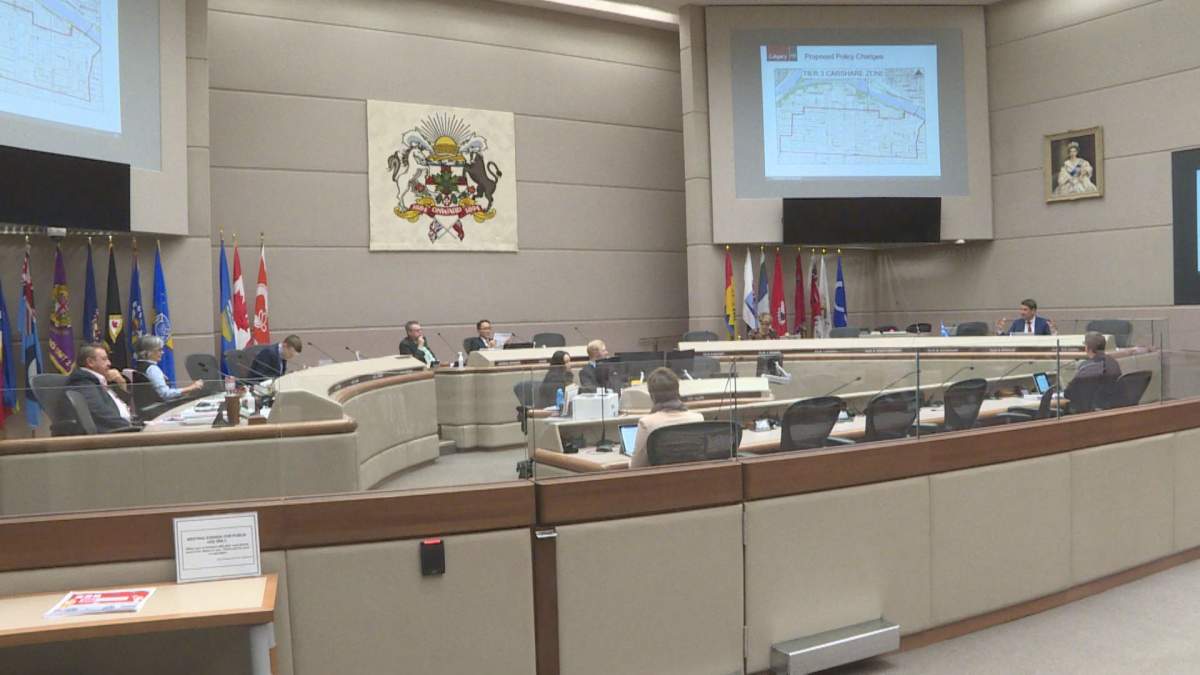Car-sharing could be coming back to Calgary as the city looks at making the rules more flexible in order to attract car-share companies to fill the gap left by Car2Go, which pulled out of the city in October 2019.

Two of the biggest changes revolve around pricing and parking restrictions.
City officials took a look at the existing regulations when Car2Go announced it was leaving, though that company’s problems were more than just Calgary-centric.
Councillors have been presented with a tiered parking pricing system that any car-sharing company wishing to set up in Calgary could choose from.
Tier 1
- $450 fee (per year, per car)
- Vehicles can park in unpaid and residential permit spaces
- Does not include the downtown core
Tier 2
- $840 fee (per year, per car)
- Includes parking in residential, unmetered and metered zones outside the downtown core
Tier 3
- $1440 fee (per year, per car)
- On-street parking allowed in all priced areas, residential areas and the downtown core
Another notable update was car-share companies with fully electric vehicles will get a 50 per cent reduction in those annual fees.
The city is also proposing car-share vehicles be allowed to park beyond the posted time limits of one hour or more.

Get breaking National news
“We know that most car-share vehicles get used five or six times during the day so they usually do move fairly frequently, but sometimes cars will be parked longer than a two-hour or three-hour parking limit,” said Eric MacNaughton, a senior transportation engineer with the City of Calgary.
“This gives a little bit more flexibility without triggering any sort of parking tickets.”

However, officials say the issue of parking “clustering” will still be enforced. In a report that went to the committee on Wednesday, it was outlined car-share vehicles can’t take up more than 25 per cent of available space in a ParkPlus zone.
Another tweak to the regulations will see car-share operators share quarterly data on things like user habits and parking, with the city so officials can monitor any impacts on the transportation network and keep tabs on vehicle clustering.
Councillor Evan Woolley, a self-avowed fan and frequent user of car-share services, said this will likely attract more companies to the city.
“I think we’re having super fruitful discussions with one or two other companies,” Woolley said. “A healthy system is one that is competitive; that we see multiple players so we’re not left with our citizens relying on one company.”
The changes have already caught the eye of the largest car-sharing service in the country, Communauto.
The Quebec-based company launched in 1994 and is now operating in 13 Canadian cities with 3,000 vehicles driving across North America.
.jpg?w=1040&quality=70&strip=all)
Company officials said they have been looking at expanding to Calgary but parking restrictions have kept their cars off the city streets.
“The posted time limit was a big issue for us because we can’t assure that a car won’t stay more than two hours at a place, we don’t want to be fined for this” vice-president Marco Viviani said.
If the changes are made, Viviani said the company could be operating in Calgary by the end of the spring.
City councillors are expected to vote on the recommended changes on Feb. 3.







Comments
Want to discuss? Please read our Commenting Policy first.